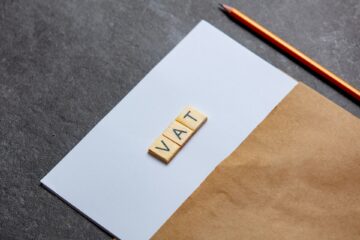Master Thai Tax Laws: A Comprehensive Guide for SMEs
Navigating the intricacies of Thailand’s tax laws and regulations can be a daunting task for small and medium-sized enterprises (SMEs). With numerous rules, legal requirements, and exemptions to consider, SMEs often struggle to maintain compliance and maximize tax efficiency. Plizz is here to lift that burden and guide you in understanding the complex world of Thai tax laws, ensuring your business operates smoothly and legally.
In this comprehensive guide, we will delve into the tax regulations and laws applicable to SMEs in Thailand, covering critical topics such as corporate income tax, value-added tax (VAT), and withholding tax. Our expert advice and solutions will equip you with the knowledge required to manage your SME’s taxes effectively and capitalize on potential cost savings. Moreover, partnership with Plizz provides your business with personalized tax solutions and professional support, solidifying your company’s financial foundation while you focus on scaling your operations.
1. Corporate Income Tax (CIT)
Corporate Income Tax (CIT) is applicable to both Thai and foreign companies operating in Thailand. CIT rates vary depending on the type of business entity, with SMEs currently facing a progressive CIT rate of up to 20%. It’s essential to understand your SME’s tax obligations, filing deadlines, and eligibility for any exemptions or deductions.
Plizz’s tax services ensure your SME stays compliant with Thai tax regulations and maximizes tax efficiency. Our team of experts assists with CIT filings, guiding you through available deductions and exemptions that could reduce your tax burden and improve your bottom line.
2. Value Added Tax (VAT)
Value Added Tax (VAT) in Thailand is an indirect tax applied to the sale of most goods and services. Currently, the standard VAT rate is 7%. Companies with an annual revenue of over 1.8 million THB must register for VAT, and are required to file monthly VAT returns and remit the collected tax to the Revenue Department. Some goods and services are exempt from VAT or subject to a zero percent rate.
Working with Plizz will simplify VAT registration, filing, and compliance for your SME. Our tax professionals ensure your VAT processes align with Thai tax laws, enabling your business to operate efficiently while minimizing the risk of penalties.
3. Withholding Tax (WHT)
Withholding Tax (WHT) is an income tax withheld at the source of certain types of payments, such as employment, service fees, or dividends. Tax rates, ranging from 1% to 15%, depend on the type of income and the recipient’s residency status. Companies need to submit WHT returns and remit the deducted tax to the Revenue Department by the 7th of the following month.
Plizz’s tax experts will not only help your SME navigate WHT requirements but also provide support with tax filings and payments. By partnering with Plizz, your SME can efficiently manage its WHT obligations, avoiding any potential penalties and ensuring compliance.
4. Special Business Tax (SBT)
Special Business Tax (SBT) applies to certain types of transactions, including property sales or transfers and lending activities. The tax rate varies between 0.1% and 3.3%, depending on the transaction type. SBT is an additional tax imposed on businesses in specific industries, and it’s crucial for SMEs in these sectors to comprehend their SBT obligations.
Plizz offers expert guidance for SMEs subject to SBT, helping you understand the applicable tax rates and ensuring proper tax calculations and payments. With Plizz’s support, your SME can remain compliant with SBT regulations and avoid any unnecessary complications.
5. Double Taxation Agreements (DTAs)
Thailand has signed Double Taxation Agreements (DTAs) with numerous countries to prevent businesses from paying taxes in multiple jurisdictions. DTAs provide mechanisms to alleviate double taxation through exemptions, credits, or reduced withholding tax rates. Understanding the benefits of DTAs can lead to substantial cost savings for SMEs with international transactions.
Rely on Plizz’ expertise to maximize the advantages of DTAs applicable to your SME. Our team will help you navigate the complexities of these agreements and ensure your business operates efficiently in the international arena while minimizing your global tax exposure.
6. Tax Incentives and Exemptions
Thailand offers various tax incentives and exemptions to promote specific industries and business activities. The Board of Investment (BOI) and the Revenue Department grant these incentives to eligible SMEs. These incentives may include CIT reductions, tax holidays, or exemptions on import and export duties.
Take advantage of Plizz’ extensive knowledge of available tax incentives and exemptions by letting us evaluate your SME’s eligibility and guide you through the application process. With Plizz’s support, you can capitalize on potential cost savings and foster your business’s growth.
Achieve Tax Compliance and Efficiency with Plizz
Thailand’s tax regulations can be complex and challenging for SMEs to navigate. Understanding and complying with these laws is vital to ensure smooth business operations and maximize tax efficiency. By partnering with Plizz, you gain access to a team of skilled tax professionals who are well-versed in Thai tax laws. Plizz’s comprehensive services guarantee your SME’s compliance with tax regulations, enabling you to focus on growing your business.
Don’t let tax complexity hold your SME back. Discover the peace of mind that comes with expert tax planning, compliance assistance, and personalized financial solutions from Plizz. Get started today by contacting Plizz for a consultation and let a Bangkok tax accountant streamline your SME’s tax management process.



0 Comments